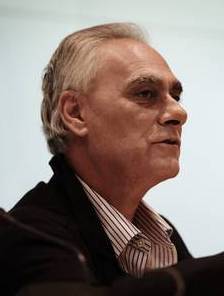As the 2020 United States presidential election approaches, it is very informative and inspirational to look at and compare the present US political situation with our current and 60th president with Lyndon B. Johnson (LBJ), the 36th president of the United States. Although Trump has promised to restore America to the great nation it used to be, it is evident that all of Trump’s promises and proposed policies are methodically dismantling American democracy. In fact, the actions of Trump and his team are in direct contrast to the civil rights gains achieved under Lyndon Johnson just over 50 years ago. Admittedly, LBJ was a master politician, who knew how to get legislation through, and he had an impressive plan that made significant changes in the lives of American citizens, even those disadvantaged and discriminated against.
Lyndon B. Johnson was elected Vice President as John F. Kennedy’s running mate. However, on November 22, 1963, when Kennedy was assassinated, Johnson was sworn in as the 36th United States President. He was president for the remainder of the term — a period some call “the accidental presidency”. Nonetheless, he came to office with a vision to build a Great Society for the American people. It was this vision that enabled him to defeat republican Barry Goldwater in the presidential election of 1964 in one of the largest landslides in U.S. history. Hence, ‘the Great Society program’ was Johnson’s agenda for Congress in January 1965. This agenda included aid to education, attack on disease, Medicare, urban renewal, beautification, conservation, development of depressed regions, a wide-scale fight against poverty, control and prevention of crime and delinquency, and removal of obstacles to the right to vote. During Johnson’s presidency, more than 200 major bills were passed focusing on social programmes. For the first time, African Americans were appointed to the Supreme Court and presidential Cabinet. He also established the Department of Housing and Urban Development.
Moreover, under Johnson, the USA made spectacular explorations of space in a programme he had championed since its start. When three astronauts successfully orbited the moon in December 1968, Johnson congratulated them: “You’ve taken … all of us, all over the world, into a new era”. Fairly, “The Great Society” enacted the most social progress since Franklin D. Roosevelt’s New Deal. However, despite all his accomplishments, Johnson’s legacy remains closely attached to the nation’s problematic entry into the Vietnam War.
Robert Schenkkan’s The Great Society, starring Brian Cox as president, depicts this crucial era in American history with all its peculiarities, sensitivities, and vulnerabilities. Definitely, it was an era that would define US history forever: the rise of the Civil Rights Movement, the deaths of Martin Luther King and Robert F. Kennedy, the escalation of the Vietnam War, and the creation of some of the greatest social programmes America has ever known. Obviously, The Great Society is a sequel to Schenkkens’s play All the Way, which told the story of Lyndon Johnson’s unexpected appointment as president immediately after the assassination of John F. Kennedy. As a follow to the first part, The Great Society takes place between January 1965 and December 1968, focusing on the struggles that Johnson went through during his second term. It is a typical historical drama, and the characters on stage are fictionalised portrayals of real people. Actually, the play managed to represent a live picture of American society during that time : the violence in the United States during Johnson’s presidency ; the major riots in Harlem, Los Angeles, Mississippi, and Atlanta; police violence by using flashbangs and tear gas; the unforgettable shouts of the white supremacists “Two, four, six, eight, we don’t want to integrate”; and African-American citizens’ peaceful marches under Martin Luther King. Sometimes, the dialogue on stage has been copied directly from speeches or papers written by political figures.
Like Shakespeare’s tragic heroes, Playwright Robert Schenkkan presents LBJ as a statesman of vision and experience, who could keep a stable relationship with many people, including Martin Luther King, bringing to life his vision of a ‘Great Society’ including domestic programmes for health, education, bills to address poverty, and civil rights. He is depicted as a hero who spent his vast political capital on the war on poverty and racism not because of elections, but because he saw America’s inequality as a stain on the country. However, his escalation of the Vietnam War led to his tragic end as he declined to run for a second term in office, and retired to his Texas ranch in January 1969.
Indeed, there’s something inspirational about Lyndon Johnson especially, in today’s climate, where presidential elections are portrayed as a game of winners and losers and not as a system designed to benefit the actual population. The Great Society played its last performance in 2019 a few days ago, and is scheduled to be played on Contra Costa Civic Theatre, California, U.S. in May 2020, only a few months before the presidential elections.
Marwa El-Shinawy holds a PhD in American theatre, and is a member of the Higher Committee of Cairo International Festival for Contemporary and Experimental Theatre


